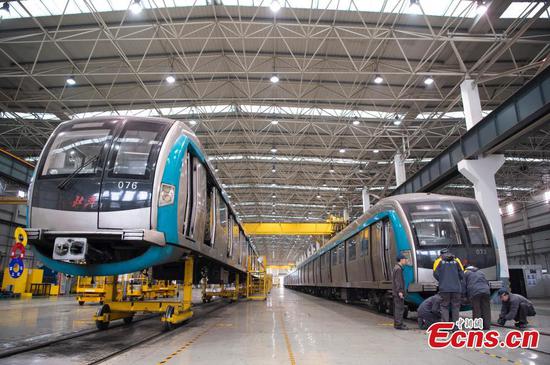Authorities will expand channels for SME lenders to better serve economy
China will deepen reform of smaller banks to strengthen their risk management capability and to enable financial institutions to better serve the economy, according to a meeting of the national financial authority.
The meeting held by the State Council's Financial Stability and Development Committee on Wednesday said that China will broaden channels for medium-sized and small banks to replenish capital, improve their capital structure and boost their ability to serve the economy and manage financial risks.
The statement underscored the financial authority's intention to further stabilize the financial market, prevent and resolve financial risks and to improve the governance system of the country's financial industry, analysts said.
The meeting also called for efforts to build a modern system of the central bank, step up construction of the fundamental system of the capital markets, and improve the country's financial system and make it more adaptive, competitive and inclusive.
The decision of the meeting was a direct response to the goals outlined by the recently concluded Fourth Plenary Session of the 19th Central Committee of the Communist Party of China, which set the tone on policies to modernize the country's governance system and capacity.
Wen Bin, chief researcher at China Minsheng Bank, said that the financial authority's meeting highlighted the urgency to improve the corporate system and governance of the country's smaller banks as they are important players in the overall financial system to serve the financing needs of the private and smaller businesses.
"The recent several meetings of the financial authority have all mentioned the issue of replenishing capital and resolving risks associated with smaller banks, indicating that there are some acute problems in the sector that need to be addressed," he said.
Wen suggested that smaller banks need to improve their corporate governance and shareholding structure to prevent a single shareholder from controlling an excessively high amount of shares and exerting a negative effect on the banks' operation.
Stricter capital management is also needed to boost smaller banks' capability to resolve financial risks, he added, noting that some smaller banks with good performance will likely accelerate their fundraising plans through initial public offerings while some will opt to issue perpetual bonds - a fixed income security with no maturity date - to replenish capital.
Some serious credit risks have been exposed in some smaller banks' business this year. For instance, Inner Mongolia-based Baoshang Bank was taken over by the country's financial regulators in May to contain the bank's liquidity risks and to prevent them from spreading to the country's financial system.
Zeng Gang, deputy director of the National Institution for Finance and Development, said that improving smaller banks' internal control and corporate governance is the key to deepening reform of the banks and preventing major risks in the financial system.
Smaller banks need to find diversified tools to replenish capital and boosting profitability and operating efficiency is an important way to help them gain sustainable capital, Zeng said.
"It is also important for smaller banks to improve their business models and differentiate their services to better deal with intensified competition," he said.


















































